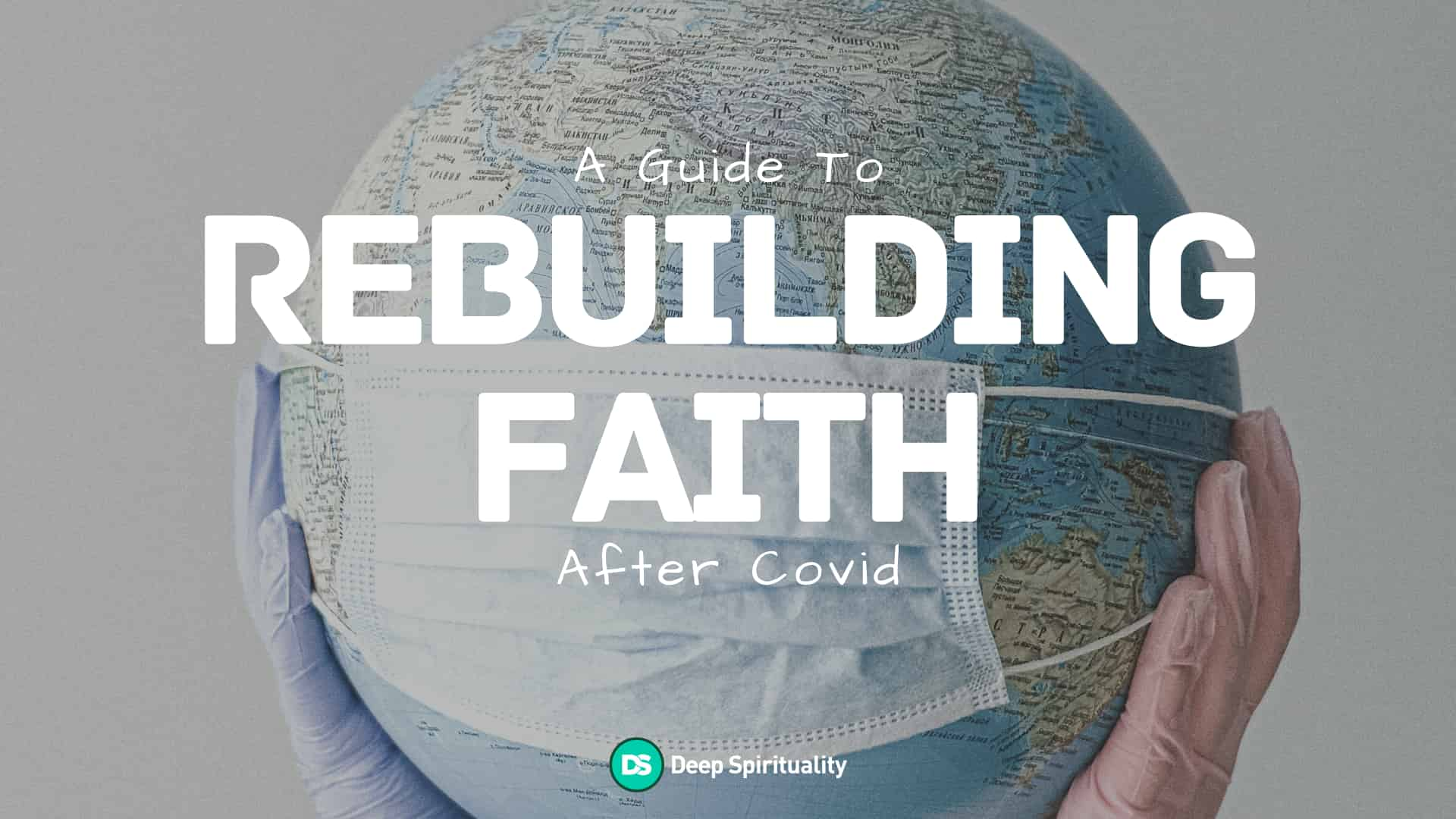This post was written in the midst of our world experiencing the COVID-19 pandemic. Though it discusses topics specific to this time, its insights and scriptures can be appreciated at any time.
In my search for wisdom and in my observation of people’s burdens here on earth, I discovered that there is ceaseless activity, day and night.
Ecclesiastes 8:16 NLT
At the time of writing this article, the world is facing an unprecedented time as we shelter in place to protect ourselves and others from a global pandemic. Being at home can provide us with an opportunity to slow down, reflect, and focus on what really matters.
For some of us though who prefer activity, it is easy to still find ways to rush around even while sheltering in place.
Throughout my life, I have evaluated myself based on how much I have gotten done, often resisting slowing down or pacing myself.
What I have realized is that my activity has been a way to avoid the emotions that come with intimacy.
Activity Over Intimacy
While working and helping our daughter with distance learning, I have also found the time to: clean out our closets, make school charts, plan and prepare meals, cut and color my own hair, reorganize the garage, do home workouts, and hike the surrounding hills.
What I have realized is that my activity has been a way to avoid the emotions that come with intimacy.
Oftentimes we can become consumed with activities or tasks because physical work is easier than the emotional work it takes to be close to God and the people in our lives. Although activity can make us feel good and productive, it cannot replace the comfort and connection that intimacy provides.
Both activity and intimacy are important to living a balanced and fulfilling life.
For everything there is a season, a time for every activity under heaven.
Ecclesiastes 3:1 NLT
God gives us time for our activities and time for intimacy that he knows we all need.
Activity can distract us
Many years ago, a school psychologist tried to help me understand that our daughter, who had just been diagnosed with dyslexia and dysgraphia, would not be able to multitask in the ways I was expecting her to.
Then he offered a little free advice; he said that no one was really good at multitasking, and that it affected people negatively mentally and emotionally.
This was disheartening to hear as I had always prided myself on being a master-multitasker, packing in several separate activities starting with my morning toothbrushing regimen. I had to face the fact that I was using activity to avoid feelings of fear I had for our daughter and feeling weak because I could not control the situation.
No one is really good at multitasking.
Activity Over Intimacy
A recent article in Fast Company magazine called “This Is Why You Are Addicted To Being Busy,” describes a behavioral phenomenon called tunneling. When we are busy running around—handling several projects, answering emails, and putting out fires—our brains deal with the overactivity by putting on blinders. We are no longer able to see the big picture, but only the immediate tasks.
This can be an intentional choice at times when we would rather work on our to-do’s than face the pain, fear, or guilt in our lives.
Too much activity gives you restless dreams; too many words make you a fool.
Ecclesiastes 5:3 NLT
I have spent many nights lying awake in restless worry because I was trying to distract myself from negative emotions and experiences that I could not completely avoid.
We are merely moving shadows, and all our busy rushing ends in nothing. We heap up wealth, not knowing who will spend it. And so, Lord, where do I put my hope? My only hope is in you.
Psalm 39:6-7 NLT
The psalmist here expresses the futility that comes with busy rushing. God wants us to put our hope in him and his words when we are feeling fear or pain rather than putting our hope in activity and our own efforts.
Pause and reflect
- Are there negative emotions and experiences you are trying to avoid by staying busy?
- How can you spend less time doing activities so that you can have more time to pray?
Activity can distance us
Many of us are familiar with the term FOMO, or “fear of missing out.” This was coined by Dr. Dan Herman over 20 years ago and has become more relevant in the days of social media where we compare our real lives with the highlights from the lives of others.
Fear of missing out can be caused by the feeling or perception that others are having more fun and experiencing better things than we are and that we will eventually be left behind.
I remember having this fear as early as childhood and as recently as last Christmas. As a child I remember pining after the Barbie motor-home I saw all my friends get, and this last Christmas I ran around to multiple stores to find matching holiday pajamas for a perfect Christmas family photo.
My fear of missing out causes unnecessary activity, which leaves me distant in my relationships because I am too tired to connect emotionally. Constantly comparing ourselves with others can also cause us to compete with people rather than come close to them.
Then I saw yet another thing: envy fuels achievement. All the work and skills people develop come from their desire to be better than their neighbors. Even this is fleeting, like trying to embrace the wind.
Ecclesiastes 4:4 Voice
This desire to want what others have is what the Bible calls envy, and much of our activity can be motivated by it.
Envy creates distance in relationships because it makes us strive to be better than others or to have more than others.
We can overcome envy by appreciating, admiring, and respecting others, while we learn from their talents and strengths. Expressing gratitude to others can also help us be close to them rather than competing with them.
Pause and reflect
- Who are the people in your life that you admire, respect, and wish to imitate?
- How can you express gratitude to people you admire?
- Who can you learn from that has strengths and talents in areas that you feel are a weakness for you?
Intimacy comforts us
I often deceive myself into thinking that I am close to others because I am constantly trying to “help” or “serve” them. But this seemingly loving activity is just motivated by the thought that if I do something for someone, then they won’t reject me.
However, I have found that the activity of serving often occurs without conversation or vulnerability. The desire I have for close relationships goes unfulfilled when I choose activity over intimacy.
Through verses of the Bible that my spouse and friends have shared with me, God has helped me to understand and express my fears, needs, and joy with others, in order to be close to them.
For when we came into Macedonia, we had no rest, but we were harassed at every turn—conflicts on the outside, fears within.
But God, who comforts the downcast, comforted us by the coming of Titus, and not only by his coming but also by the comfort you had given him. He told us about your longing for me, your deep sorrow, your ardent concern for me, so that my joy was greater than ever.
2 Corinthians 7:5-7 NIV
This passage has helped me to acknowledge and express to God the challenges I face and how they make me feel. It says that God provides comfort to those who are downcast through friends. This changed my mind and heart to begin to be honest with God and the people in my life so that we could be truly close (1 John 1:7).
I thought it would be painful to take a risk and share what I believe, feel, and think. I thought this would make people laugh at me or leave me. God has shown me the truth: if I trust him by sharing my heart, he will comfort me by showing me the love and encouragement that I really need.
His comfort has given me hope and the courage to share my heart vulnerably with my spouse and friends. Many times this has led to intimacy in friendships that is very comforting.
What is desired in a man is steadfast love, and a poor man is better than a liar.
Proverbs 19:22 ESV
The Bible tells us the truth that we desire steadfast love more than accomplishments, achievements, or possessions. Striving for intimacy in a relationship with God and others through honesty and humility will lead to what we desire the most in our hearts.
Pause and reflect
- What are some fears and insecurities you have that you can express to God and friends?
- Who is someone in your life that you can ask for help, guidance, or encouragement?
Intimacy connects us
The times in my life when I have slowed down and said no to constant activity have enabled me to take time to listen to God through the Bible and to others through conversations.
With less activity and distraction I can really hear what’s important to others and be connected by finding ways to meet their needs rather than just following my agenda or getting things done.
A technology and science article I read in Newsweek said that the coronavirus may have caused the earth to stop vibrating so much. Seismologists have said that since measures to curb the spread of the virus were put in place there has been a noticeable drop in the planet’s seismic man-made noise from transportation and machinery.
Our reduced activity can also allow us to hear God speaking to us and allow us to share with him our hearts as well.
This man-made noise has fallen by one-third. This drop in noise from human activity is helping scientists to better monitor earthquakes and volcanoes, as less background noise provides more clarity and focus on the earth’s inside sounds and movement.
Just as the decrease in the earth’s activity allows for listening and understanding by scientists, our reduced activity can also allow us to hear God speaking to us and allow us to share with him our hearts as well. We can learn from two women in the Bible who were sisters but one chose activity while the other was focused on building intimacy.
As Jesus and the disciples continued on their way to Jerusalem, they came to a certain village where a woman named Martha welcomed him into her home. Her sister, Mary, sat at the Lord’s feet, listening to what he taught.
But Martha was distracted by the big dinner she was preparing. She came to Jesus and said, “Lord, doesn’t it seem unfair to you that my sister just sits here while I do all the work? Tell her to come and help me.” But the Lord said to her, “My dear Martha, you are worried and upset over all these details! There is only one thing worth being concerned about. Mary has discovered it, and it will not be taken away from her.
Luke 10:38-42 NLT
Martha was focused on the details and her activities made her miss an opportunity to listen to Jesus. Mary was able to build an intimate relationship with Jesus simply by sitting with him and listening.
Both listening to others and sharing our own hearts create connections that lead to intimacy.
My heart has heard you say, “Come and talk with me, O my people.” And my heart responds, “Lord, I am coming.”
Psalm 27:8 TLB
God is always ready to hear us talk to him, and he is hoping our hearts will respond by sharing our fears, pains, guilt, and weaknesses rather than relying on activity to make us feel better.
Pause and reflect
- Who can you spend time with this week to listen to their needs as well as expressing your own?
- Take time daily to read the Bible to know and understand God and build an intimate connection with him and others.




